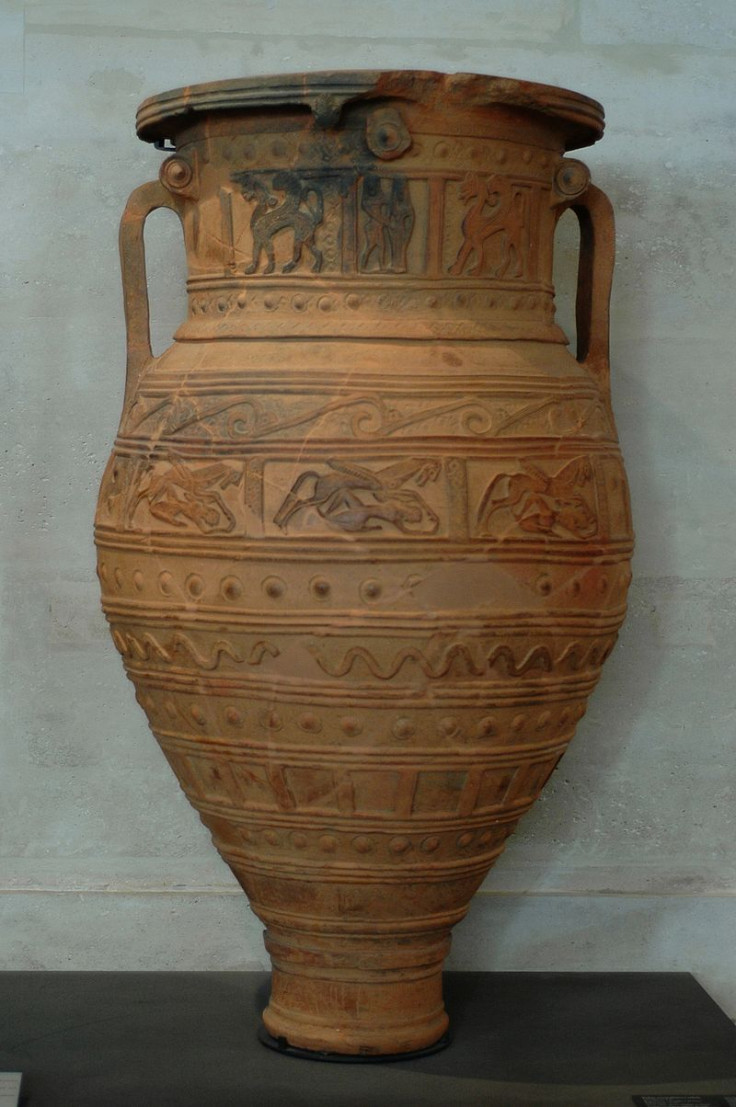Byzantine era Greek pithos weighing 300kg discovered in Black Sea

An ancient Greek storage jar has been discovered in the Black Sea off the coast of Trabzon province in north-eastern Turkey. Fishermen found the container – also called a pithos in Greek – after it got stuck in a net, officials said.
The pithos weighs around 300kg and is 1.5m long. It is believed to date back to the Byzantine Empire of the fourth century.
Captain and crew of the fishing vessel claimed that they had cast their net close to Trabzon's Arsin district, when they accidently found the pithos. "We first launched the net in the afternoon but could not find fish," Yaku Uzun, captain of the boat Adem Baba 3 told the Hurriyet Daily News. "We launched again in the evening and saw the pithos in the fishing net," he said and added that they had been fishing in the Black Sea for several years and were "very excited" to find the artefact.
The boat crew informed the Turkish provincial culture and tourism ministry about the find. They even thought that they would find gold inside the pithos but it was empty, Uzun said.
The pithos was transfered to Trabzon Museum from the harbour on a truck. It took about 45 minutes and ten workers to unload the heavy pithos, reports said. Officials took every possible precaution to prevent any damage to the ancient artefact.
Large pithos like these were used in ancient times to store agricultural produce like grains or liquid items such as wine or olive oil, officials said. They did not reveal what material the pithos was made of, although it is usually made of ceramic and clay. In some ancient cultures, the vessels were also used as a funerary item buried alongside the dead.
© Copyright IBTimes 2025. All rights reserved.






















